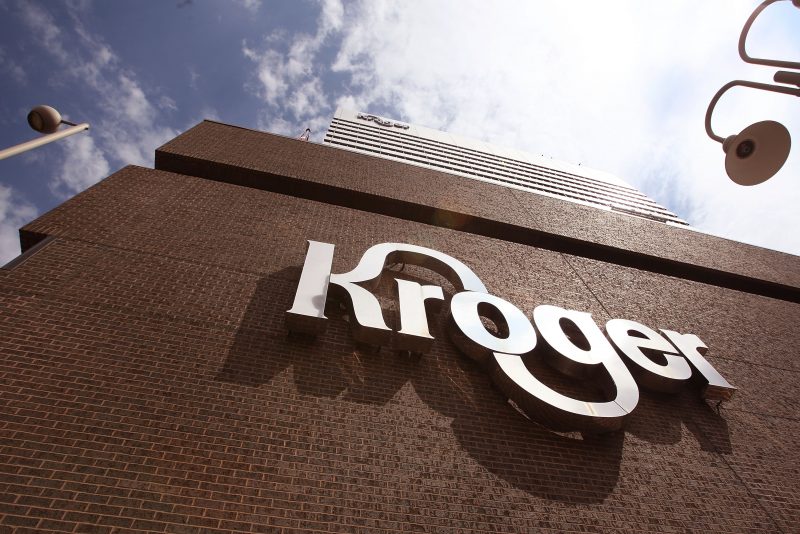
OAN’s Elizabeth Volberding
1:18 PM – Tuesday, February 27, 2024
The Federal Trade Commission (FTC) is now suing to put a stop to a Kroger and Albertsons merger, according to federal court documents that were filed and later released to the press.
The court records showed that the FTC filed a lawsuit on Monday in order to halt the merger of Kroger and Albertsons. With this merger, two of the largest grocery store chains in the United States would join forces.
In October 2022, Kroger declared its intention to purchase Albertsons for $24.6 billion. The FTC claimed that this acquisition would result in “increased grocery costs” for millions of Americans.
“This supermarket mega merger comes as American consumers have seen the cost of groceries rise steadily over the past few years. Krogers’ acquisition of Albertsons would lead to additional grocery price hikes for everyday goods, further exacerbating the financial strain consumers across the country face today,” said Henry Liu, Director of the FTC’s Bureau of Competition. “Essential grocery store workers would also suffer under this deal, facing the threat of their wages dwindling, benefits diminishing, and their working conditions deteriorating.”
Stores owned by Kroger are in 23 states across the nation and include businesses such as Fred Meyer, Fry’s, Harris Teeter, King Soopers, and Quality Food Centers. Albertsons runs stores in 35 states under regional names such as Haggen, Jewel-Osco, Pavilions, Safeway, and Vons.
The FTC claimed that if the merger was approved, Kroger and Albertsons would operate about 5,000 stores, about 4,000 retail pharmacies, and nearly 700,000 jobs across 48 states.
Kroger said in a statement that the FTC lawsuit will “actually harm” American citizens rather than helping them, according to a statement published after the lawsuit was filed.
“The FTC’s decision makes it more likely that America’s consumers will see higher food prices and fewer grocery stores at a time when communities across the country are already facing high inflation and food deserts,” the statement reads. “In fact, this decision only strengthens larger, non-unionized retailers like Walmart, Costco and Amazon by allowing them to further increase their overwhelming and growing dominance of the grocery industry.”
However, according to Kroger, customers would gain far more options and cheaper costs if the deal closes. In addition, it has pledged to invest an additional $1.3 billion to upgrade Albertsons locations and $500 million to start reducing prices on day one after the closure, according to the company.
In a statement, California Attorney General Rob Bonta described the proposed merger as “bad for workers.”
“This megamerger is bad for workers, for agricultural producers, and for California communities. In some markets in Southern California, Kroger-Albertsons is expected to be the only one-stop grocery option. Today, we are going to bat for a more just and competitive economy, one where companies need to compete for labor and where prices and service matter,” Bonta said in the statement.
Bonta and the attorneys general from Washington D.C., Illinois, Maryland, Nevada, New Mexico, Arizona, Oregon and Wyoming also joined in on the lawsuit.
“Bottom line: this merger will benefit the shareholders of these companies, not regular Arizonans. I am proud to stand with the FTC and my fellow attorneys general in suing to block this anticompetitive, anti-consumer, and anti-worker merger,” Arizona Attorney General Kris Mayes announced.
Meanwhile, Senator Dan Sullivan (R-Alaska), voiced that he is in favor of the FTC lawsuit.
“The FTC found that the merger would likely reduce competition and raise prices—putting further strain on working families in our state who are being crushed by the high inflation caused by the Biden administration’s policies. I appreciate and support the FTC’s thorough analysis and decision to take action to block this merger for the benefit of Alaskans,” Sullivan stated.
Stay informed! Receive breaking news blasts directly to your inbox for free. Subscribe here. https://www.oann.com/alerts

